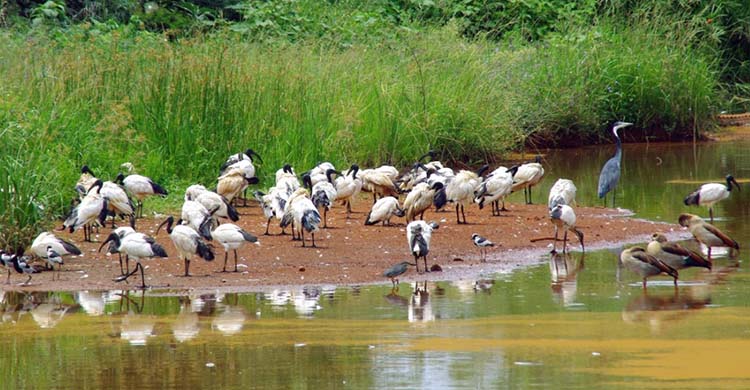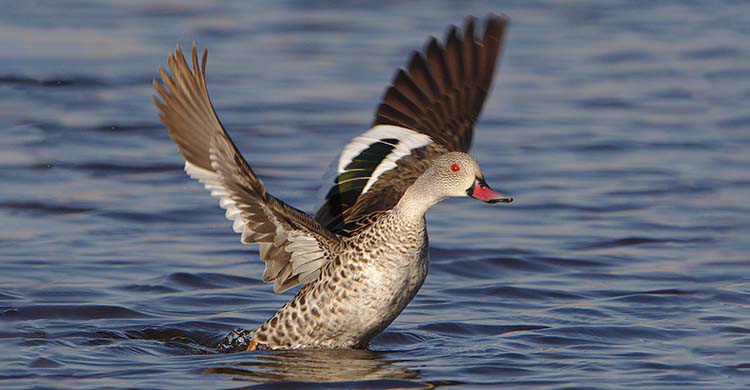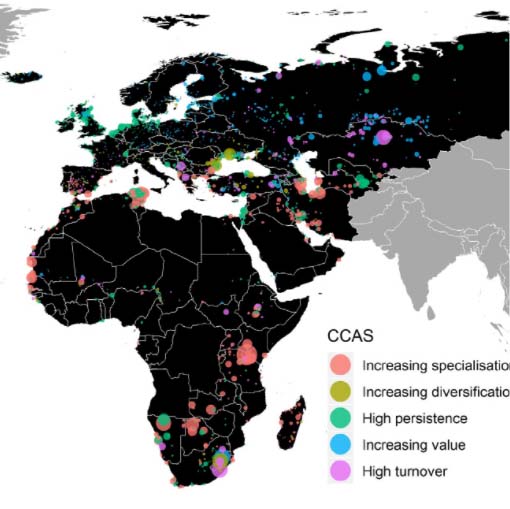New Study: Most African Wetlands Used by Migratory Birds to be Degraded by Climate Change

New study reveals that 87% of the Critical Sites in Africa are predicted to become less suitable for waterbirds by 2050. © pxhere.com
Bonn, 25 November 2021 - As much as 87% of the Critical Sites in Africa are predicted to become less suitable for waterbirds by 2050 because of the impact of climate change. These are the findings of a new study by a group of international experts published in Global Change Biology. The research – coordinated by Wetlands International – was supported by the African-Eurasian Waterbirds Agreement (AEWA) and funded by the International Climate Initiative (ICI) of Germany.
According to the study that analysed 2,601 Critical Sites, more than half (55) of the 100 most vulnerable sites along the entire African-Eurasian flyway are in Africa. These sites are harbouring significant parts of the populations of already threatened waterbird species and it is of high concern that they will be heavily affected.
Climate change is altering patterns of weather and natural water systems. Ecosystems that used to thrive are likely to be disrupted due to warming temperatures. These changes are increasingly degrading Critical Sites in the Middle East and Africa.
Wetlands in Africa are more at risk compared to those in Eurasia, where suitable climatic conditions will shift northwards. In Eurasia, waterbirds are already adapting to suitable climatic conditions by also shifting their distribution range to the north except for the High Arctic species.

The study points to the importance of more targeted management of networks of protected and conserved areas in future, calling for classifying Critical Sites into Climate Change Adaptation Strategy (CCAS) classes to better manage the adaptation of individual sites as well as their entire network to the effects of climate change. The importance of an appropriate response for particularly impacted regions throughout the African-Eurasian flyway with dedicated resources, governance mechanism and institutional capacity highlights the critical role of international policy instruments such as AEWA.
Jacques Trouvilliez, the Executive Secretary of AEWA said: "The study shows that the impacts of climate change point to emerging gaps in the network of Critical Sites in Africa. To ensure effective conservation throughout the African-Eurasian flyway, we need to strengthen capacities in Africa and adapt management measures to be successful."
Adapting to climate change does not only benefit waterbirds. Restoring vulnerable wetlands will also help local communities to ensure water and food security.
As Ward Hagemeijer the project's supervisor pointed out: "Wetlands are not only waterbird habitat but also important sources of food and water for local communities and they provide important regulatory services through carbon sequestration and disaster risk reduction. African countries will need strong support to design and implement climate change adaptation measures."
The study has been carried out by Wetlands International, BirdLife International, the British Trust for Ornithology (BTO), the Rubicon Foundation, and McGill, Kassel, Wisconsin, Lausanne and Moscow State Universities.

“Setting priorities for climate change adaptation of Critical Sites in the African-Eurasian waterbird flyways”
Last updated on 30 November 2021


